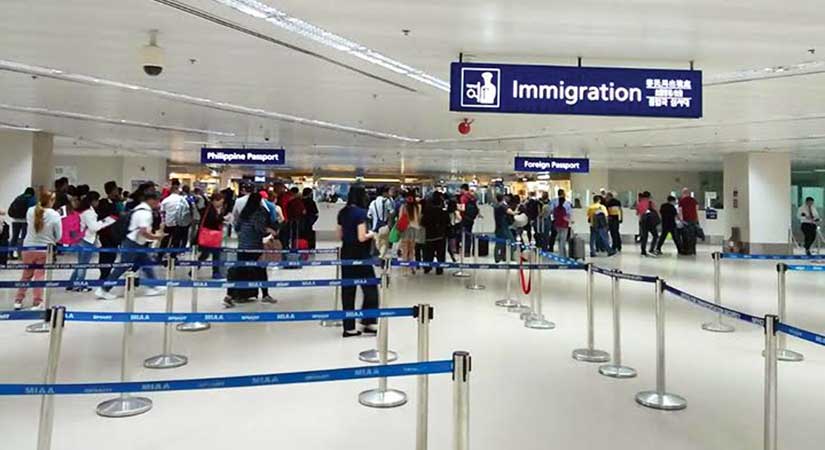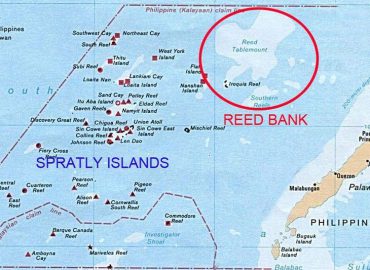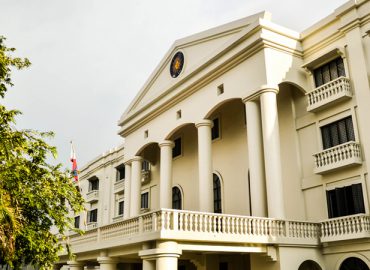By Gillian M. Cortez and Reicelene Joy N. Ignacio, July 12 2019; Business World
https://www.bworldonline.com/departments-agencies-consolidate-rules-governing-foreign-workers/
Image Credit to Philippine News Agency
FIVE DEPARTMENTS and four agencies have moved “to harmonize the regulations and policy guidelines governing the issuance of… documents to foreign nationals intending to work in the Philippines” that are currently provided under various laws.
Joint Memorandum Circular No. 001, series of 2019, was signed on Thursday by representatives of the Department of Environment and Natural Resources (DENR), the Department of Finance (DoF), the Department of Foreign Affairs (DFA), the Department of Justice (DoJ) and the Department of Labor and Employment (DoLE), as well as the Bureau of Immigration (BI), the Bureau of Internal Revenue (BIR), the National Intelligence Coordinating Agency (NICA) and the Professional Regulation Commission (PRC).
The circular harmonizes rules and procedures — and outlines documentary requirements — for the issuance of:
• alien employment permits by DoLE;
• special temporary permits by the PRC;
• special work permits and provisional work permits by BI;
• 9(g) and 47(a)2 visa by DFA;
• authority to employ alien and 47(a)2 visa by DoJ;
• and authority to hire foreign nationals by DENR’s Mines and Geosciences Bureau.
Labor Secretary Silvestre H. Bello III said in a briefing after the signing ceremony that the departments and agencies involved will establish new monitoring measures on foreign nationals that will include joint teams to inspect businesses that employ foreigners.
“We will create a task force composed of DoLE, BIR, and BI. Sila ang magco-conduct ng (They will conduct) rigid inspections,” Mr. Bello said, adding that these inspections will begin “ASAP.”
On the other hand, a technical working group (TWG) — consisting of DENR, DoF, DFA, DoJ, DoLE, BI, BIR, NICA and PRC — will be formed to collate reports on employment of foreign nationals and establish a database for such information.
Mr. Bello said that DoLE will be in charge of administering the system, explaining: “Magkakaroon tayo ng (We will have) one registry of foreign nationals working in the Philippines… ‘Yung DoLE, iko-collate namin ang (DoLE will collate) reports ng (of) different agencies.”
The new guidelines also state that foreign nationals need to secure a Tax Identification Number (TIN) before they could have a work permit. Mr. Bello said “Hindi sila bibigyan ng permit kung hindi sila magbabayad ng buwis (They will not be given a permit if they do not pay taxes).”
Another salient provision of the circular gives foreign nationals two options for applying for their pre-arranged employment visa or the 9(g) visa: “one, securing a work visa while in the Philippines and, two, securing a work visa at the Philippine Embassy or Consular Post prior to entry to our country,” Bureau of Local Employment Director Dominique R. Tutay said at the sidelines of the circular’s signing ceremony.
Earlier this month, the BI said new guidelines — Operations Order No. JHM-2019-008 — prioritize 14 categories for the issue of special working permits, including athletes, performers, and persons with special abilities.
There had been no guidance for this permit previously.
FOCUS ON GAMING OPERATIONS
Meanwhile, the BIR itself has issued another batch of notices requiring Philippine offshore gaming operators to pay withholding taxes that are expected to amount to an additional P3 billion.
“We released some more letter notices. That’s worth about another P3 billion,” BIR Commissioner Caesar R. Dulay told reporters on Thursday.
Earlier BIR notices were estimated to yield approximately P4.4 billion in additional withholding taxes.
BIR Deputy Commissioner Arnel SD Guballa said that the bureau was able to come up with the figures by coordinating with other agencies such as the Philippine Amusement and Gaming Corp.
Mr. Dulay said that BIR hopes to come up soon with its database of foreign workers in order to get a better picture of foregone tax revenues.
“We really need that database to really capture, to get a good idea,” Mr. Dulay said.
Mr. Guballa said that not everyone of the estimated 130,000 foreign workers in the Philippines has a tax identification number (TIN).
“Actually, ongoing na ’yung processing ng mga walang TIN (The processing of those without TIN is ongoing). They’re going doon sa mga respective district offices. Although voluminous, we are already moving forward…” Mr. Guballa said.
The Finance department had estimated that the government loses about P2 billion a month in foregone revenues for every 100,000 workers due to non-remittance of taxes. — Gillian M. Cortez and Reicelene Joy N. Ignacio



